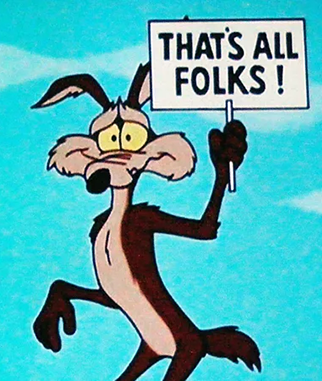Layoffs and Grief

I was lucky, I figured. I’d lasted decades at an industry in crisis, Journalism, doing better every year. Then I spent years at a prominent, high-paying tech company. When the layoff call finally came for me, I took it well – right up until the first midnight. What happened next showed me the dark, wild thing that happens to millions of people a year. The one almost nobody talks about.
Last January 22 my phone buzzed at 8:30 AM. It was my boss, seeking a 9 AM meeting.
“Here comes the layoff,” I told my wife.
For several weeks my employer was quietly but relentlessly trimming a few people here and there. Nothing that would grab headlines like the massive cut in 2023, but enough. When you have 180,000 people, a 1% trim gets you near a headline that says “thousands laid off.” Plus, by design I worked as a loner, teaming up with others as needed, but with no one reporting to me. Easy cull.
“Don’t be ridiculous,” she said. “You get great reviews. Nobody does what you do, and you’re a survivor.”
All true, particularly the last part. I prospered in Journalism during the single most disastrous period in its history. Since 2006, newspaper ad revenues, the mainstay of the business, have fallen 80%. Digital ads and subscriptions can’t begin to make up for that, so employment is down by about a quarter. In 2017 I figured I’d had all the fun I could, and got out before I was taken out. Luck is usually finite. I went to a trillion-dollar tech company that geysered cash, and after some trepidation (are you some kind of journo mole? people would “joke” to me) I’d become an indispensable go-to for a lot of senior talent in need of better communication. My boss and I got along great. Heck, I fed his kids with my homemade jams!
Vanessa’s view and mine converged when I began the work call with a mix of professionalism and nervous levity. ‘If you’re calling this early on short notice, it can be only one of three things,” I said to my boss. “You’re laying me off, you want more plum jam, or there’s an emergency requiring my inestimable narrative skills.”
“You’re right,” he said. “It’s one of those three.” I had two months’ notice.
Luck was finite. Maybe: If you’re going to get laid off, be at a company with a decent exit package, when your kids are all paid for, your mortgage is covered, and you feel like retirement is under control. I would never, ever compare myself to what normal people in America experience in a layoff. I had a cushion, running room, and a chance to do something new. So far it is going very, very well.
That said, I want to write here about a rarely-acknowledged but almost universal grief that goes with a layoff, at any age. I’m writing it so that, should you hit a layoff, you can understand that there are elements of madness in a layoff that may feel weird, but aren’t.
I handled the news well, and throughout the day started thinking about a plan. Then I woke up at 2 AM, terrified. I thought about how management must hate me. How worthless I am. How I’ll never get work again, how I’m now an outcast in the world, nobody wants me. One step away from “mom and dad don’t love me” stuff.
Even while it was going on, I knew it was nonsense, on a rational level. And it was almost comical, witnessing my rational self go up against this primitive, terror stricken dimension. Mostly I wanted those two to cut it out, so I could get some rest.
It was grief, I realized, and grief is a kind of madness. But what was I grieving? The shape of my days. This is America, and work is pretty tightly bound up with identity. When we meet strangers in America we usually ask them what they do, expecting an answer that is somewhere within the structures of capitalism. Even if you don’t like the place all that much, it’s shattering when devoting those hours ends (and I liked mine). Not to mention the social death, and seeing all your surviving colleagues go back to being with each other. Pretty quickly HR treats you like a problem to be waited out, and that stings.
Of course, none of this is rational. Viewed analytically, if you think your company loves you, you should be interrogating your family about their dental plan and 401(k) match. But who said we are entirely, or even mostly, rational creatures? Many times, when I read the painful LinkedIn notes from people who’ve just lost their affluent tech jobs, it’s that primal sense of rejection that comes through. Really, though, it was, as they say, just business.
For me at least, it was also an opportunity to grow a bit in that essential human trait that isn’t quite rational, compassion.


